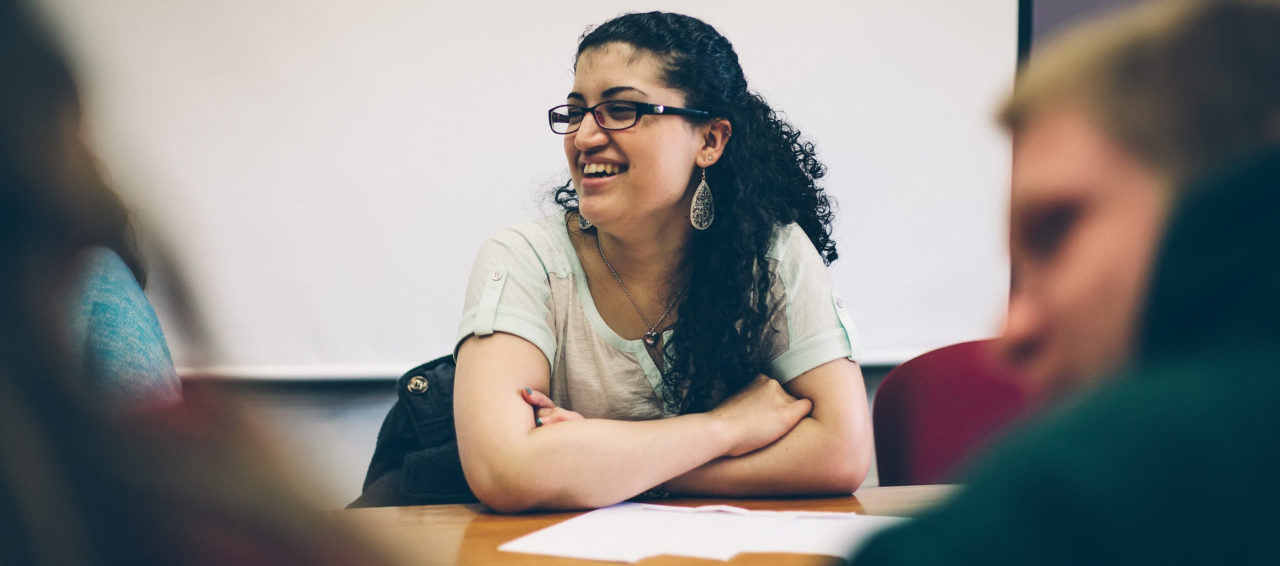Biology BS, Physical Therapy DPT: combined degree

The Physical Therapy Program is a collaborative combined-degree program between Fairleigh Dickinson University (FDU) and the Rutgers University School of Health Professions (Rutgers-SHP). The program specializes in doctoral-level education for individuals wishing to become physical therapists. Students in the Doctor of Physical Therapy (DPT) program receive state-of-the-art education that prepares them to be in the forefront of the physical therapy profession.
Physical Therapy means the examination, treatment and instruction of human beings to detect, assess, prevent, correct, alleviate and limit physical disability, movement, dysfunction, bodily malfunction, and pain from injury, disease and other bodily and mental conditions, and includes the administration, interpretation, and evaluation of tests and measurements. It includes the planning, administration, evaluation, and modification of treatment and instruction, including the use of physical measures, activities, and devices for the preventative and therapeutic purposes: and the provision of consultative, educational and other advisory services for the purpose of reducing the incidence and severity of physical disability, movement, dysfunction, bodily malfunction and pain. Physical therapists continue to be in demand throughout the United States.
Admission requirements
- High School graduation or equivalent diploma (GED)
- English as a Second Language (ESL) placement test is required and completion of ESL courses, if necessary.
- Earn a minimum of 550 on TOEFL Exam for applicants with foreign credentials who are transferring into the DPT program.
- Completion of any necessary developmental courses as determined by the University’s Basic Skill Test.
- A minimum GPA of 2.75 is required for all transfer students.
Admission to Rutgers-SHP
- Complete all general education requirements maintaining an overall GPA of 3.0;
- Maintain a minimum GPA of 3.0 in all required science and math courses.
- Demonstrate knowledge of the physical therapy profession through actual work and/or volunteer experience;
- Demonstrate evidence of community service;
- Formally apply to the Rutgers-SHP Physical Therapy Program for the professional component of the program; (admission to the program cannot be guaranteed by FDU)
- Satisfactory score on all three sections (Verbal, Quantitative and Analytical) of the Graduate Record Exam (GRE);
- Submit three letters of recommendation; and
- Have basic computer literacy, including file management, use of work processing and spreadsheet programs, use of email and the internet
Program Outcomes for BS Biology
Students majoring in Biology develop the following skills and abilities:
Ability to use the scientific method and understand its strengths and weaknesses: Clearly states a hypothesis; Identifies not only the basics of the issue, but recognizes the nuances of the issue.
Ability to research a biological topic using traditional and computer technology: Provides a thorough and relevant literature review; Considers alternate ways to approach the questions; Ability to read and evaluate professional scientific literature; Demonstrates understanding of the relationship between experiment and theory.
Ability to write and communicate science: Writing enhances the presentation; Writing is consistently well written; Writing communicates clearly using the language of biology; Writing displays an excellent command of writing mechanics; Topics are clearly organized; Topics are covered in-depth; Topics display an abundance of original ideas; APA style is used consistently and accurately without any errors.
Ability to utilize mathematical reasoning and quantitative skills in biology: Analyzes data via graphs, statistics and curve fitting as appropriate; Possess observational and technical skills; Carries out controlled experiments using the proper equipment and safety measurements; Identifies relevant constraints; Collects data carefully and with appropriate precision; Uses initial data to refine the experiment.
Possess major field knowledge: Identifies an appropriate question by using prior knowledge; Ability to successfully compete in biologically related fields; Obtains acceptance into graduate/professional schools or employment in the field.
Degree Plan
NOTE: All students are required to complete the General Education Requirements of their campus in fulfillment of their Bachelor degree requirements. [Florham Campus students are required to take SPCH 1107 Fundamentals of Speech AND MEDT1130 Bioethics OR PHIL1440 Bio-Medical Ethics as part of their general education requirements]
Florham Campus
Semesters 1 and 2
- BIOL1221, BIOL1222 Biological Diversity and Laboratory
- BIOL1223 Biological Diversity Recitation
- BIOL1233, BIOL1234 Introduction to Molecules, Cells and Genes and Laboratory
- BIOL1235 Molecules, Cells & Genes Recitation
Semester 3 and 4
- BIOL3253, BIOL3254 Comparative Vertebrate Anatomy and Laboratory
- BIOL2003, BIOL2004 Cell Biology and Laboratory
Semesters 5 and 6
- BIOL3100, BIOL3101 Genetics and Laboratory
- BIOL3256, BIOL3257 Genetics (Lecture and Laboratory)
- BIOL3225/BIOL3226 General Microbiology and Laboratory
- BIOL3337, BIOL3327 General Physiology
Cognate Requirements
Semesters 1 and 2
- CHEM1201, CHEM1203 General Chemistry I and Laboratory
- CHEM1202, CHEM1204 General Chemistry II and Laboratory
Semesters 3 and 4
- CHEM2261, CHEM2263 Organic Chemistry I and Laboratory
- CHEM2262, CHEM2264 Organic Chemistry II and Laboratory
Semesters 5 and 6
- PHYS2203 / PHYS2201 University Physics I Lecture and Laboratory
- PHYS2204 / PHYS2202 University Physics II Lecture and Laboratory
- CHEM3281 Biochemistry I
Metro Campus
Semesters 1 and 2
- BIOL1221, BIOL1222 Biological Diversity and Lab
- BIOL1233, BIOL1234 Molecules, Cells and Genes
- CHEM1201 General Chemistry I
- CHEM1203 General Chemistry Lab I
- CHEM1202 General Chemistry II
- CHEM1204 General Chemistry Lab II
- WRIT1002 Composition I: Rhetoric and Inquiry
- WRIT1003 Composition II: Research and Argument
- MATH1107 Precalculus
- MATH1201 Calculus I
Semester 3 and 4
- CHEM2261 Organic Chemistry I
- CHEM2263 Organic Chemistry Lab I
- CHEM2262 Organic Chemistry II
- CHEM2264 Organic Chemistry Lab II
- BIOL2203/BIOL2223 Anatomy and Physiology I and Lab
- BIOL2204/BIOL2224 Anatomy and Physiology II and Lab
- PSYC1201 General Psychology